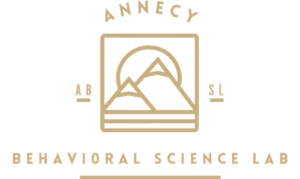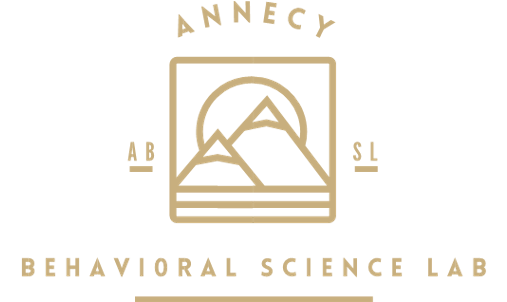
migs@absl.io
Annecy Behavioral Science Lab
94 Route de Filly, 74410, Saint-Jorioz
Psychology is committed to uncover the intricacies of human behavior and mental processes. Because human behavior is so varied across contexts and settings, and because measurement is quite complex, our journey of discovery is paved with challenges. Like Richard Feynman once said, “The first principle is that you must not fool yourself, and you are the easiest person to fool.” For a science to be trustworthy and transparent, we must put in safeguards not to fool ourselves. As human behavior and cognition is so complex, it is easy to find post-hoc justification for any significant finding that we may stumble upon.
As we stand on the shoulders of giants, the legacy of our scientific endeavors is not just in the findings but in the very process of discovery itself. This workshop is an ode to the spirit of Open Science—a movement reborn as the Credibility Revolution, the movement has emerged from the ashes of past controversies, aiming to elevate the integrity of research through openness, transparency, and collaboration.
This workshop aims to instill these practices through a blend of theoretical understanding and hands-on exercises, all within a framework that celebrates curiosity, critical thinking, and collaboration. The workshop is focused on beginners in their open science journey and will thus very much focus on basic, elementary (non-programming based) solutions to greater transparency.
2 days (4 hours per day)

| Cookie | Duration | Description |
|---|---|---|
| cookielawinfo-checkbox-analytics | 11 months | This cookie is set by GDPR Cookie Consent plugin. The cookie is used to store the user consent for the cookies in the category "Analytics". |
| cookielawinfo-checkbox-functional | 11 months | The cookie is set by GDPR cookie consent to record the user consent for the cookies in the category "Functional". |
| cookielawinfo-checkbox-necessary | 11 months | This cookie is set by GDPR Cookie Consent plugin. The cookies is used to store the user consent for the cookies in the category "Necessary". |
| cookielawinfo-checkbox-others | 11 months | This cookie is set by GDPR Cookie Consent plugin. The cookie is used to store the user consent for the cookies in the category "Other. |
| cookielawinfo-checkbox-performance | 11 months | This cookie is set by GDPR Cookie Consent plugin. The cookie is used to store the user consent for the cookies in the category "Performance". |
| viewed_cookie_policy | 11 months | The cookie is set by the GDPR Cookie Consent plugin and is used to store whether or not user has consented to the use of cookies. It does not store any personal data. |
